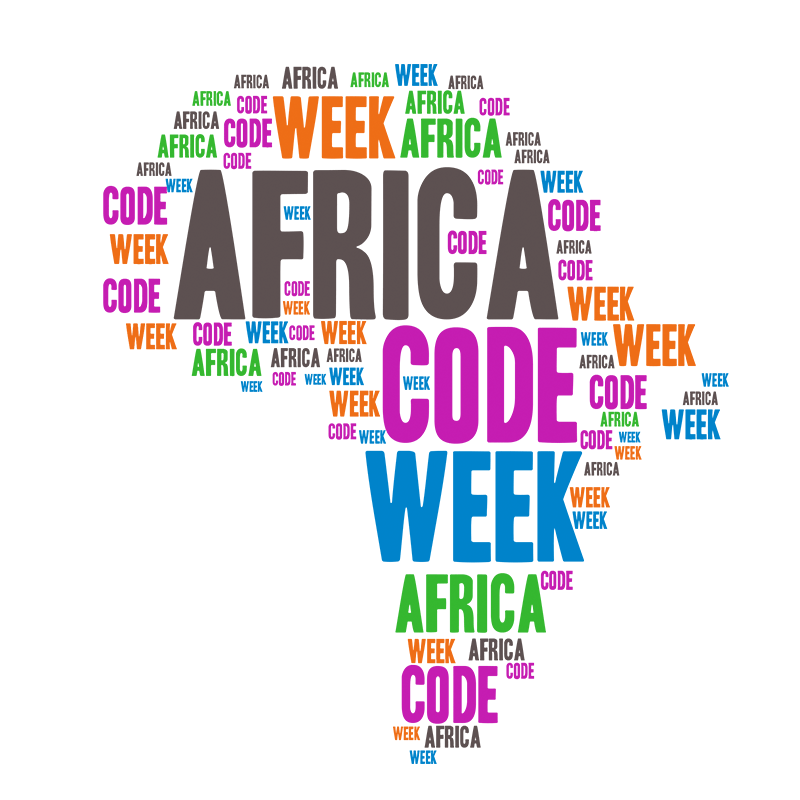With Hundreds of Partners Africa Code Week Will Offer Job-Relevant Software Coding Skills to 150,000 Youth Across 30 African Countries.

WALLDORF, Germany, May 11, 2016 — SAP SE will train more than 150,000 youth in 30 African countries this year to foster digital literacy and equip the continent’s rising generation with job-relevant digital skills.
Africa Code Week 2016, a program organized by SAP, will run October 15–23, 2016, with thousands of free coding workshops and online training offered to children and youth aged 8 to 24.
“Today literacy should go beyond just knowing how to read and write, even beyond digital literacy — knowing how to use computers. Basic literacy for the next generation should be about coding,” said Jean Philbert Nsengimana, the Minister of Youth and ICT of the government of Rwanda.
The Africa Code Week 2016 kickoff coincides with the World Economic Forum on Africa being held in Kigali, Rwanda, on May 11–13.
The World Economic Forum estimates that Africa’s growth will be just below 5 percent this year as the global economy continues to suffer.
The continent has the fastest-growing digital consumer market and the largest working-age population in the world. At the same time, African companies are scrambling to fill positions with employees who possess the right digital skills. Only 1 percent of African children leave school with basic coding skills.
Africa Code Week 2016 workshops for younger age groups (8–11, 12–17) will be based on Scratch, a learning platform developed by the MIT Media Lab to simplify coding.
Students will learn coding basics and program their own animations, quizzes and games. Those aged 18 to 24 will be offered a workshop called “Introduction to Web Technologies” (for HTML, CSS, Javascript, PHP, SQL), which will give them a basic understanding of typical website architecture while teaching them how to create a fully operational, mobile-friendly website.
Africa Code Week 2016 will be organized by SAP and hundreds of partners spanning local African governments, non-profit organizations, NGOs, educational institutions and businesses including the Cape Town Science Centre, the Galway Education Centre, Google, AMPION, the King Baudouin Foundation and ATOS.
“Coding skills are the basis to success in the digital economy,” said Franck Cohen, president, SAP Europe, Middle East and Africa. “Africa Code Week is an impactful initiative to bridge today’s skills gap in Africa, empowering young people for successful careers and equipping businesses for sustainable growth. We are proud to spearhead this initiative working together with hundreds of local and international partners from the public and private sector.”
The initiative will run in Algeria, Angola, Benin, Botswana, Cameroon, Republic of Congo, Djibouti, Egypt, Ethiopia, The Gambia, Ivory Coast, Ghana, Kenya, Lesotho, Madagascar, Malawi, Morocco, Mozambique, Namibia, Nigeria, Rwanda, Senegal, South Africa, Swaziland, Tanzania, Togo, Tunisia, Uganda, Zambia and Zimbabwe.
Critical to the success of the program is the training of thousands of teachers, parents and educators across the 30 African countries. Between the kickoff today and the start of Africa Code Week 2016 in October, SAP will conduct thousands of train-the-trainer sessions to help prepare them for the initiative. In addition, access to online courses on the openSAP platform enables further scale and impact.
2015 Hugely Surpassed Expected Participation
Africa Code Week — the largest digital literacy initiative ever organized on the African continent — was launched by SAP and partners in 2015 with the goal of training 20,000 young people across 17 African countries. That goal was surpassed with an impressive 89,000 youth introduced to coding by 1,500 trained trainers across 17 countries in 10 days. Africa Code Week received a C4F award (“Education of the Future” category) from the World Communications Forum in Davos on March 8, 2016.
For more information on this initiative, visit Africa Code Week, or follow on Twitter at @AfricaCodeWeek.
/PRNewswire/









